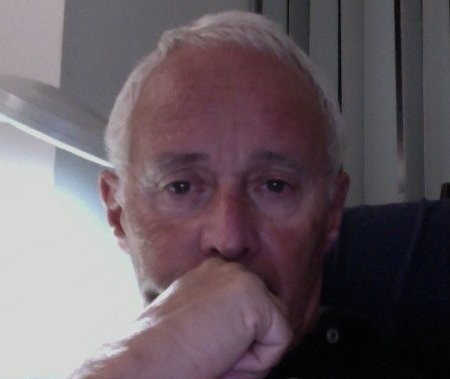Moshe Pitchon (1948) Rabbi, Professor of Jewish Philosophy and Biblical Literature. Born in Buenos Aires, Argentina from Turkish father and French mother who ran from the war. Served as a leader of the Jewish community of Chile during some of the years of the military dictatorship. For the past 40 years live in the United States (Southern California and Southern Florida). Two daughters born in the USA yet our home language to today, and their mother tongue has been Hebrew.
In your opinion, what importance, if any, does the existence of a Jewish state have to you personally and to Jewish people in general?
“For better or worse Israel is today the reference point of everything Jewish, even for those who look to deny their Judaism.”
Do you feel committed in some way to defend the future existence of Israel?
“Yes, Israel existence and its future survival is largely dependent on the Jewish communities around the world.”
Do you affiliate yourself with a specific confessional division in Judaism? What is your view regarding the dominance of the Orthodox division in Israel religious establishment?
“No affiliation, though yes sympathies. Orthodoxy in Israel is corrosive and pernicious. Their concern is the protection of their franchise not the well being of the Jewish people at large.”
Do you feel morally responsible for Israel’s actions (such as its management of the Israeli-Palestinian conflict)?
“Yes. Not only all the people of Israel as a corporate body are responsible one for the other, it’s also impossible in the eyes of the world to separate Israel from all Jews wherever they live. A victory of one Jew is a victory for all Jews, a stain on one is a stain on all.”
In your opinion, what is the main thing Israelis fail to understand about the reality of being Jewish outside of Israel?
“No other lack of understanding than one Jewish community in one country has for another Jewish community in another country.”
How would you describe Israel’s policy (formally and in practice) regarding its relationship with the Diaspora?
“Concerned and responsible. By far Israel has been more responsive and active in safeguarding the interests of another Jewish community around the world than any other community has been for another community. I would object to the use of the word Diaspora, it disguises an ideology that distorts reality. It was coined in the 6th century B.C.E. with the double purpose of self-pity and to differentiate from those that choose to live outside of Israel instead of exercising their choice to return.”
In your opinion, does Israel have an obligation to defend and help Jewish communities in need?
“Yes, as much as any one community has for another.”
Have you ever been to Israel? if you have, can you summarize your impression from the Israeli reality?
“Have been. Israelis live in a tough neighborhood and are very much part of history as it is been shaped in manner that it is more intensive than the manner in which other Jewish communities live and shape history. Nobody not living in those circumstances can understand the way Israelis experience and reflect life.”
Can you tell us a bit about the Jewish community in your hometown? Is it organized? Are there community activities?
“Material achievements are priority followed by their status within society at large. Judaism is more of a posture than a source of meaning or a frame of reference to respond to life’s challenges.”
Anything you would like to add?
“Important as the present is, the future is more. Jews today talk too much about the past and nurture not enough their vision for the future. I also think that an important element of the Israel equation today are Christians sympathetic to Israel in particular those that consider themselves Jews but they are not so seen by Jews.”

